By Andrew Mullen
For months, student activists at the University of Michigan have called for their school to cut financial ties to the state of Israel, only to be met with rejection from university officials.
However, the students refuse to be ignored.
Following the lead of activists at Columbia University and other schools across the country, more than 100 students have been camping at the University Diag since April 22, demanding that University President Santa Ono and the Board of Regents divest. Residents at the encampment expressed a sense of peaceful comradery as they aim to pressure the university and show solidarity with the Palestinians in Gaza.
The Diag encampment was formed by the TAHRIR Coalition, a group of 81 student organizations advocating the university to divest its endowment away from companies linked to Israel and for the university to conduct a formal inquiry into anti-Arab, anti-Palestinian and Islamophobic incidents on campus, according to the group’s website.
Calls for divestment have increased rapidly at U of M amid the current Israeli military assault on Gaza that has killed more than 34,500 people, according to the Gaza health ministry. Friction on campus has increased over the issue, with about 40 student protesters arrested during a November sit-in at Ruthven Hall. Regents have declined to divest from Israel due to a “longstanding policy to shield the endowment from political pressures,” wrote University spokesperson Colleen Mastony in a press release, though activists have pointed to recent divestments from fossil fuels and Russia to argue that the university can make these financial decisions.
As the school year reaches its conclusion, student activists have formed a micro community at the heart of their campus. Dozens of tents line the Diag, with the camp surrounded by Palestinian flags and banners that read “Liberation Zone” and “Encampment For Gaza! Divest Now!” In between rallies, students sit and study on their laptops, hand out food or read books from the camp’s “Liberation Library.” Passover was celebrated in the encampment, while a designated area was set up for Jummah Prayer last week.
So far, the U of M encampment has remained peaceful throughout its operation, though police have monitored it from a distance. Counter-demonstrators have periodically stood next to the encampment wearing Israeli flags as capes, along with planting dozens of small U.S. and Israeli flags last week right next to the Diag.
Media pundits and politicians have regularly claimed these encampments are anti-Semitic or intimidating, notions the U of M campers vehemently push back on, saying their movement is diverse and that these points only serve to distract the conversation away from their goals of helping the Palestinian people. Here are some of these student activists speaking on why they joined the encampment and what message they hope to send to the wider public.
Nooralhuda Omar, U of M senior
I am not Palestinian. I am Iraqi, raised in Baghdad, and I was born the year before the occupation of 2003, at the dawn of the (Iraq) War that took the lives of a million Iraqis. Over the past few months especially, but generally in the scope of the past 75 years of the Israeli occupation of historic Palestine, I see many parallels between the brutality that my family and I endured in Iraq under the hands of the U.S. occupation to the plight of the Palestinian people today.
The encampment is a historical mode of protest that (students) did at the University of Michigan in the ’80s during the anti-apartheid movement in South Africa. As we have seen in national news, lots of colleges around the country are staging their own encampments, all in unison, demanding their respective universities to divest from companies complicit in Israeli war crimes, Israeli universities and discontinuing those partnerships.
Historic incidents of mass protests and outrage that stand to challenge the status quo are painted in an unfavorable light. We are painted as people who are uninformed about the realities of the context of the political situation in Palestine and are seen as people who want to get riled up with no context. That is the danger of the media’s portrayal of this genocide being marked on Oct. 7. That framing of this entire movement, and having that be the center of this, has been problematic. This has been a struggle that is over 100-years-old, if you want to get into the historical nuances of the occupation of Palestine, and it is really important to contextualize it as such.
Our anger is righteous, and it is a movement that stems from a history of displacement, colonization and brutality.
Michael Mueller, U of M grad student
The goal is to call on the university to divest, meaning that we want the university to stop funding, directly or indirectly, companies that are profiting from Israel’s genocide and the apartheid system. This is a call that’s been around at the university for decades. SAFE (Students Allied for Freedom and Equality) called for divestment decades ago and the university ignored that, so we have to push. We have to disrupt the normal operations of the university.
Like anyone with a conscience, I’ve been horrified by what is happening in Gaza, (where) Israel continues to massacre over 30,000 Palestinians. I am also Jewish, and I’ve received a lot of Zionist narratives about how things work and have unlearned a lot of that. I recognize as a Jewish person in America, I have a responsibility to speak out about this being done in our name.
Lots of Jewish students are here and are being villainized and called anti-Semitic, even as we hold a community space here that many of us haven’t been able to find in our congregation. The main thing, getting back to Palestine, is that we recognize even though (the portrayal of encampments) is disappointing, it’s totally in line and expected with what we’ve seen from the U.S. government, which is backing this genocide. So to keep that funding going, and to prevent critique, the government and other powerful institutions are using propaganda to try to stop meaningful solidarity with the Palestinians.
Nat Leach, U of M senior
When I first learned about Gaza and Palestine in my freshman year in high school, I remember sitting in the classroom and we had an hour-long lesson on the Nakba. It’s hard to hear that and have that be your introduction to something. I really just (couldn’t) look away. Since then, I’ve developed into leftist-socialist politics. I care not just because I have a responsibility to, but (because) I genuinely care about other people. So it’s not any type of political agreement, it’s just pure solidarity.
We are disciplined. Not only do we have Jewish comrades, but amongst our non-Jewish comrades, we call out anti-Semitism when we see it within the movement. Understanding the entire web and PR surrounding Israel, those accusations of anti-Semitism are a weaponization, and it’s intentional and very calculated.
I commend Colombia for reminding us to not get looped up in celebrating (our) encampment, even as we see pictures and messages from children in Rafa praising what they are calling the student Intifada. This is not about us. We are in the heart of the beast, and our institution is fueling their genocide. We’re doing, if anything, a crumb of what we should be. We need to remember we’re fighting for divestment from funding genocide.
Don’t listen to the words about us, listen to the words from us.
Eaman Ali, U of M senior
The goal of the encampment is divestment and part of the way it is meant to achieve that is through disrupting business as usual at the university. Disturbing the pathways that people go through the Diag, when they come to visit for graduation, and when they come to visit campus for incoming students. They (will) see our banners and our messaging that we demand divestment.
As Americans, we are the number one financial investors in this genocide. It is not due to some conflict in the Middle East. We have even more responsibility than people in other places to stay [with] “no,” to boycott, to demand divestment and to demand the liberation of Palestinians.
Growing up in an Arab and Muslim community, the calls for Palestinian liberation were something that I grew up with, and I always attended protests and fundraisers for Palestine. It’s been amazing to see how the movement has gone global and how it has brought in so many people from many different backgrounds under the context of collective liberation. Freeing Palestine frees all of us, and it’s one fight against imperialism and settler colonialism.
Ember McCoy, U of M fourth-year Ph.D. student
I’ve been involved in activism and organizing on campus for the entirety of the time I’ve been here. Particularly, I was involved in the Climate Action Movement to divest from fossil fuels, and I think there was this direct tie to divestment work that I got involved (in). I study social justice and activism issues related to the environment, so I think part of that draw was seeing what was happening (in Gaza) and wanting to do my part from here.
I hope that people take away that the genocide is not as far as they think it is. Our taxpayer dollars and our universities are directly funding it, so I hope they can come here and see that we’re all united collectively for our cause. We feel heard by the community of people who are supporting us here, but I don’t know if we yet feel heard by the university and the administrators.


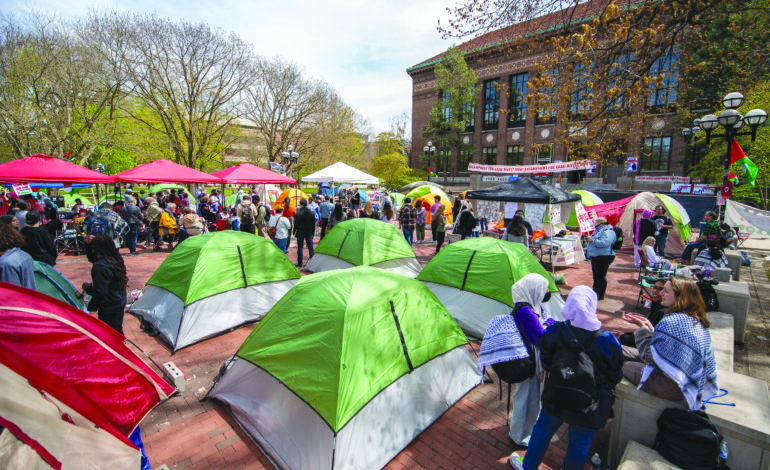
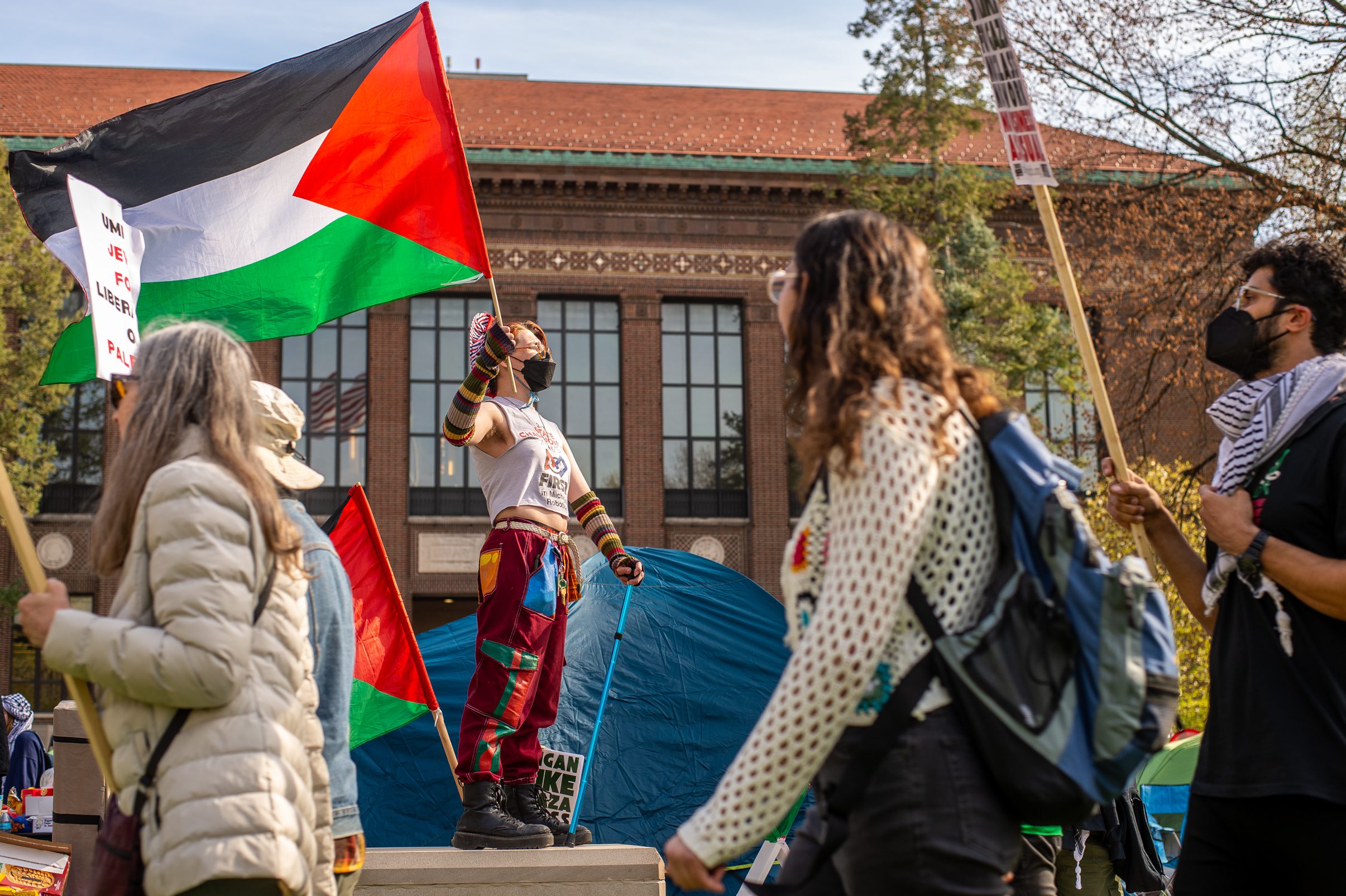
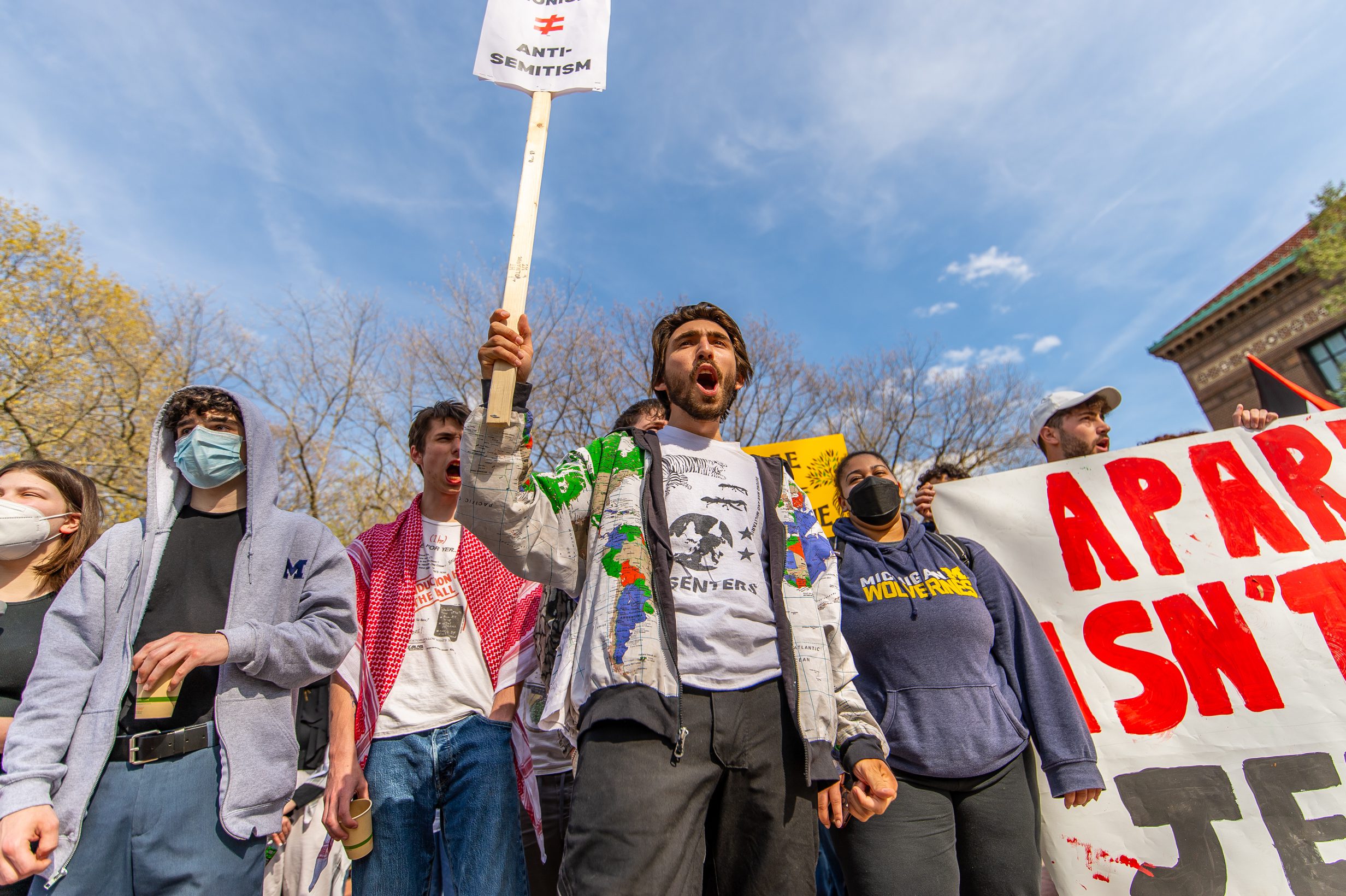


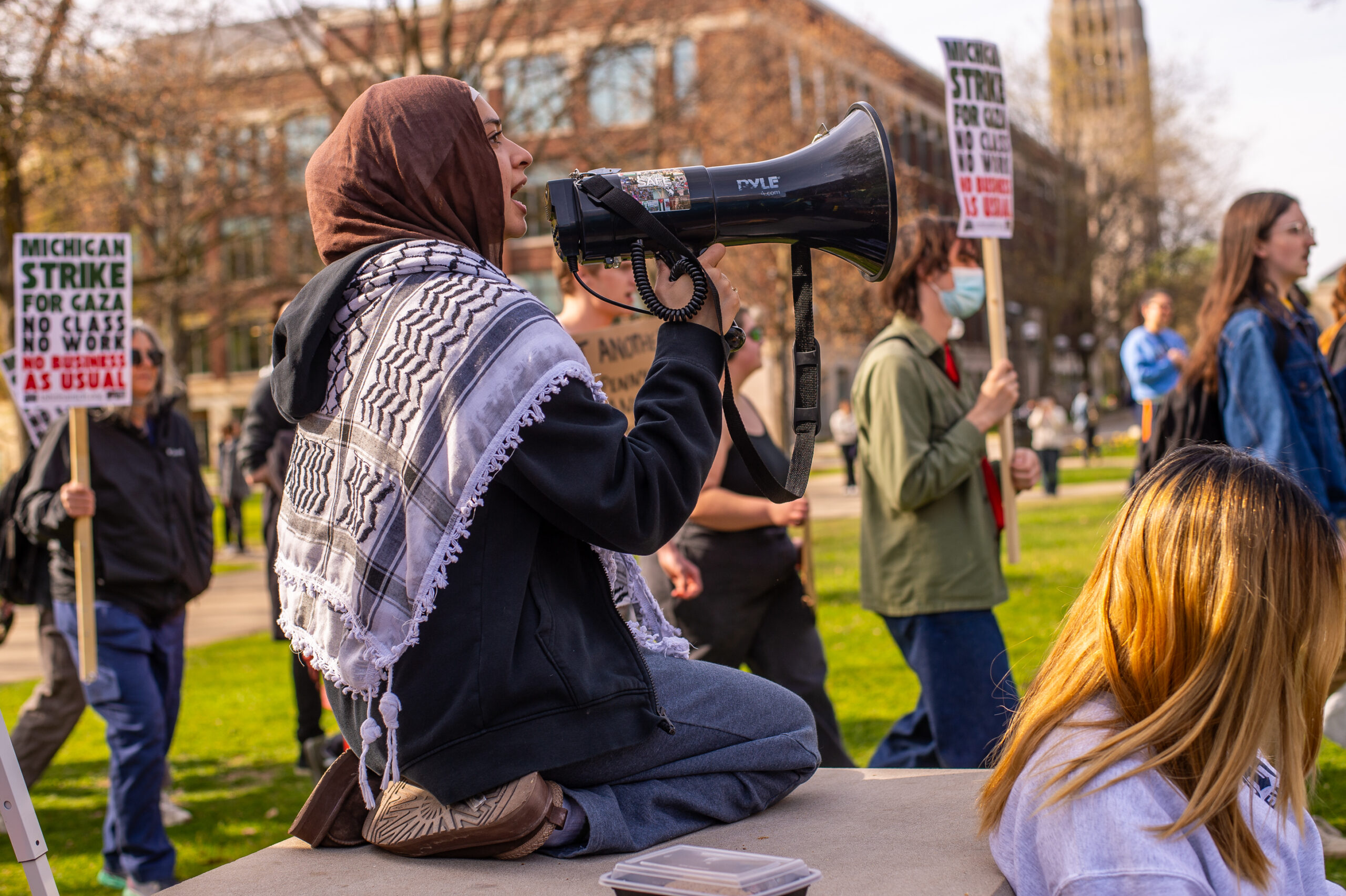
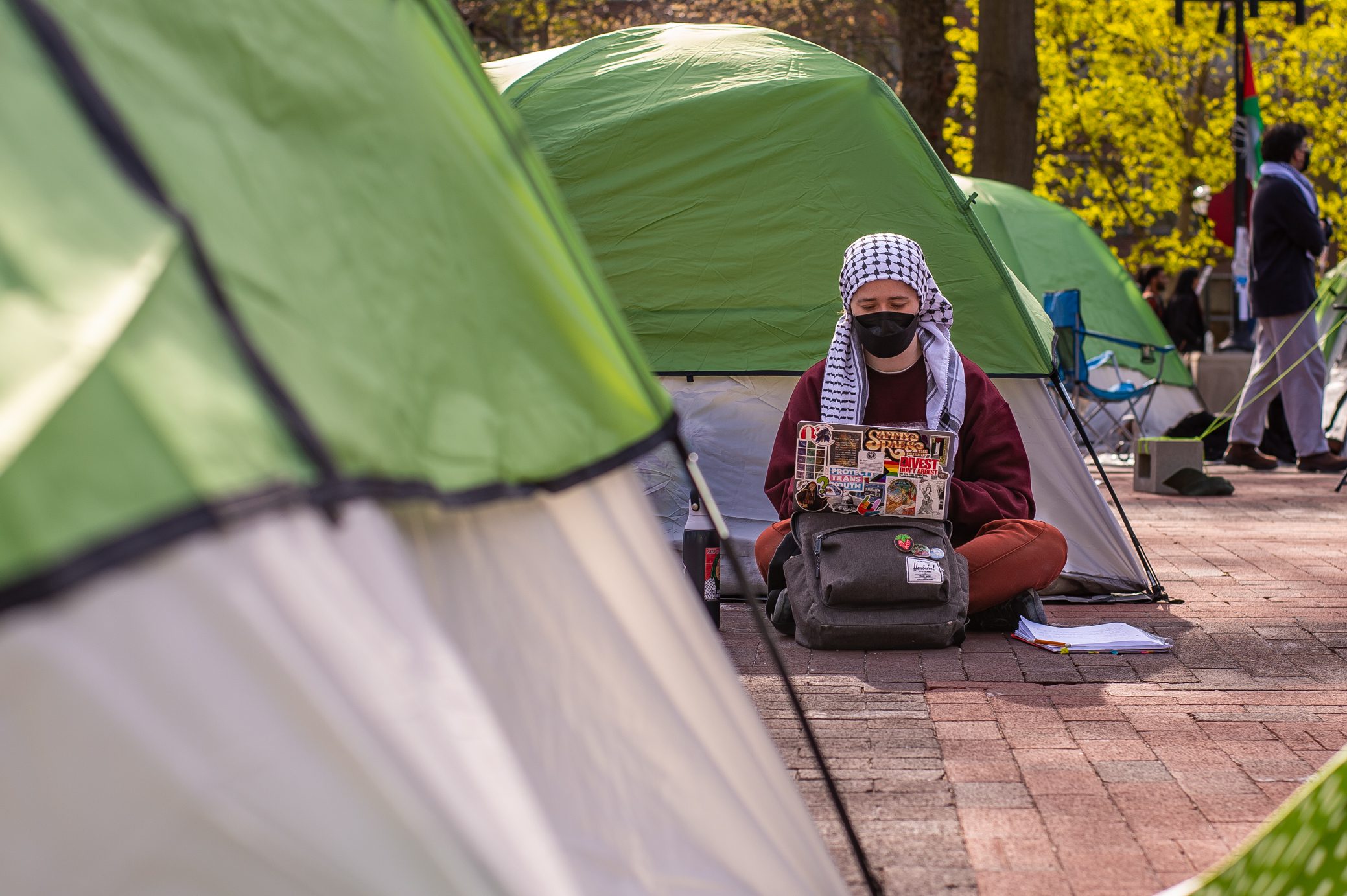




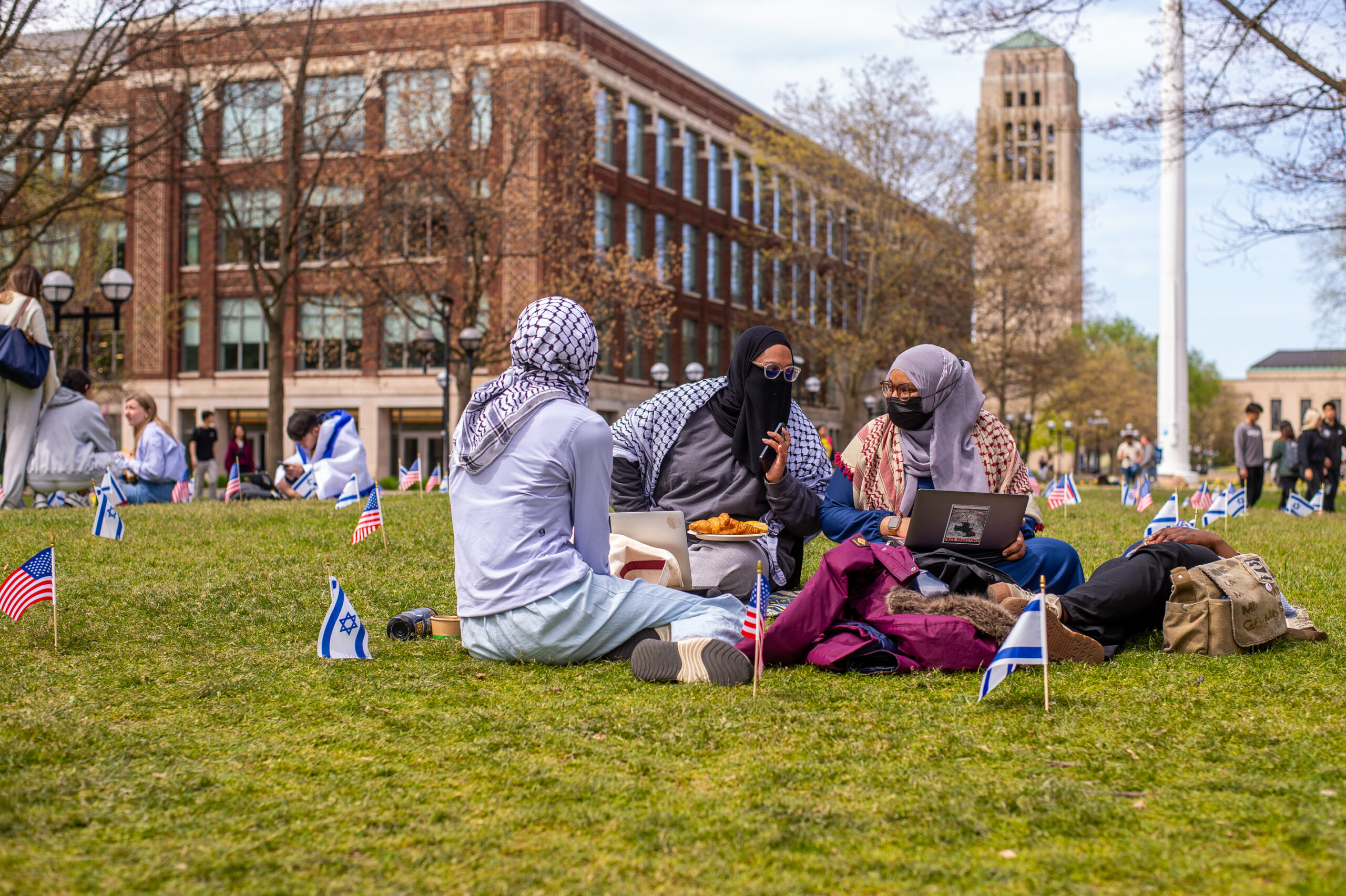
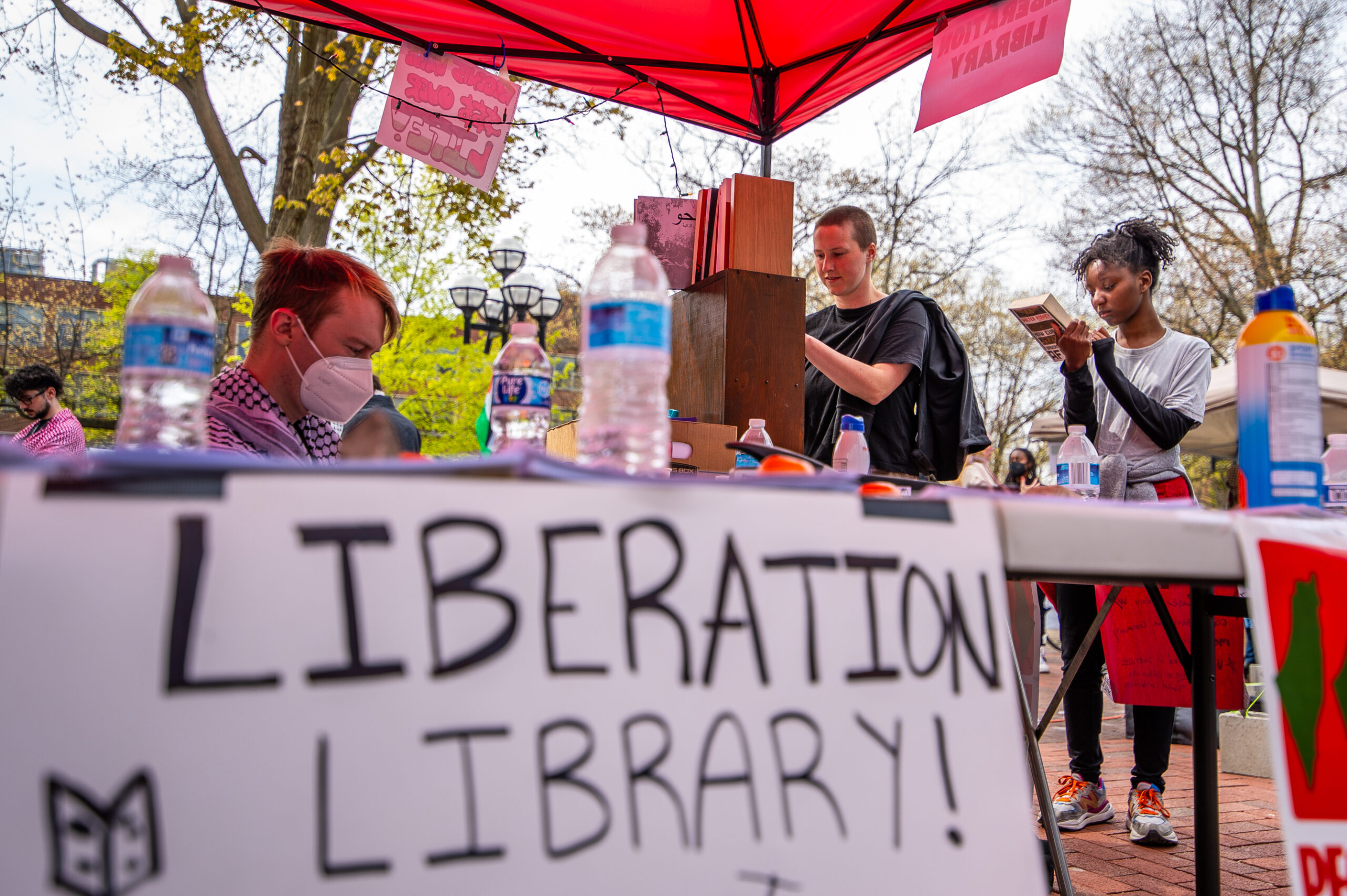
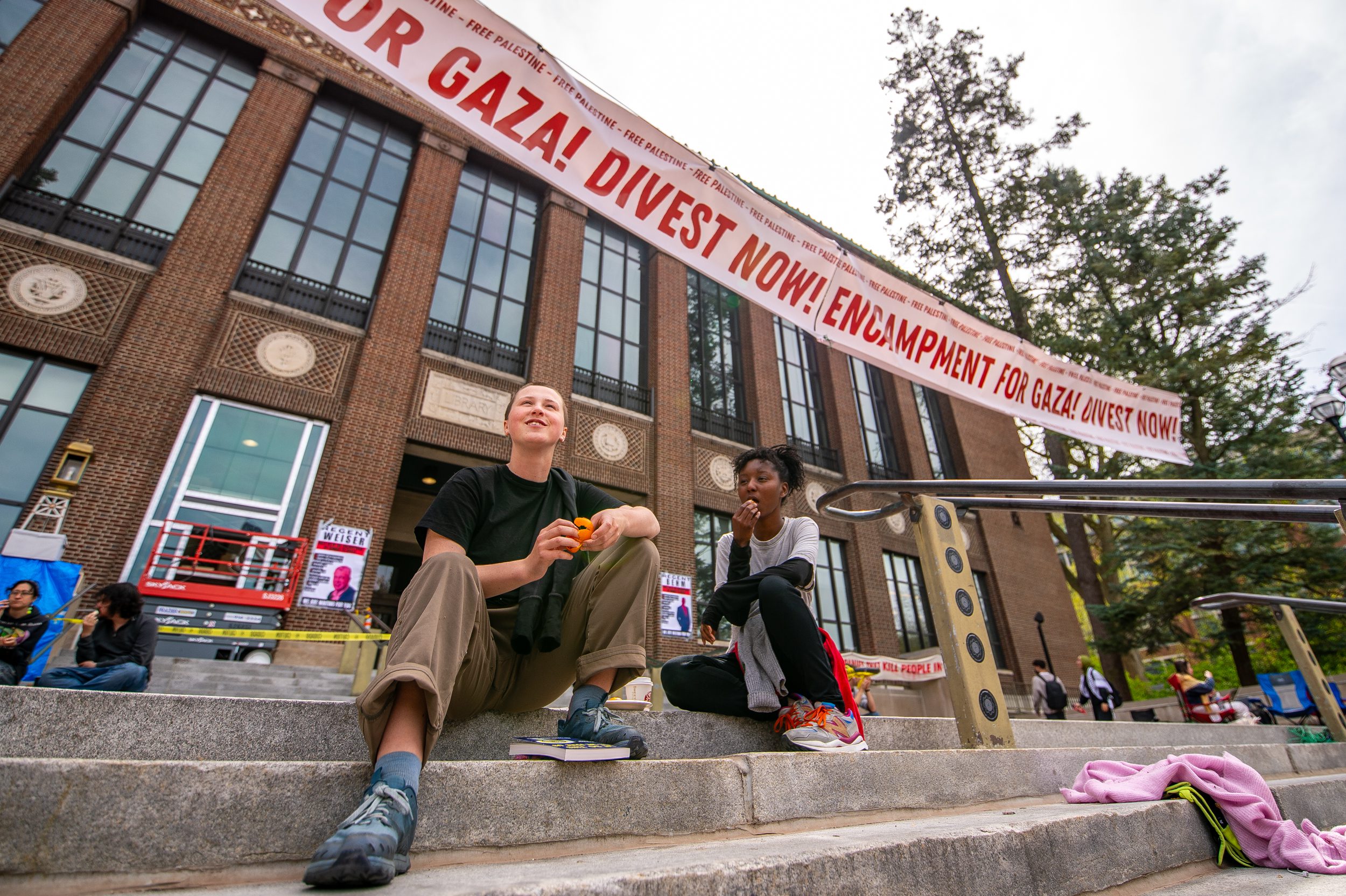
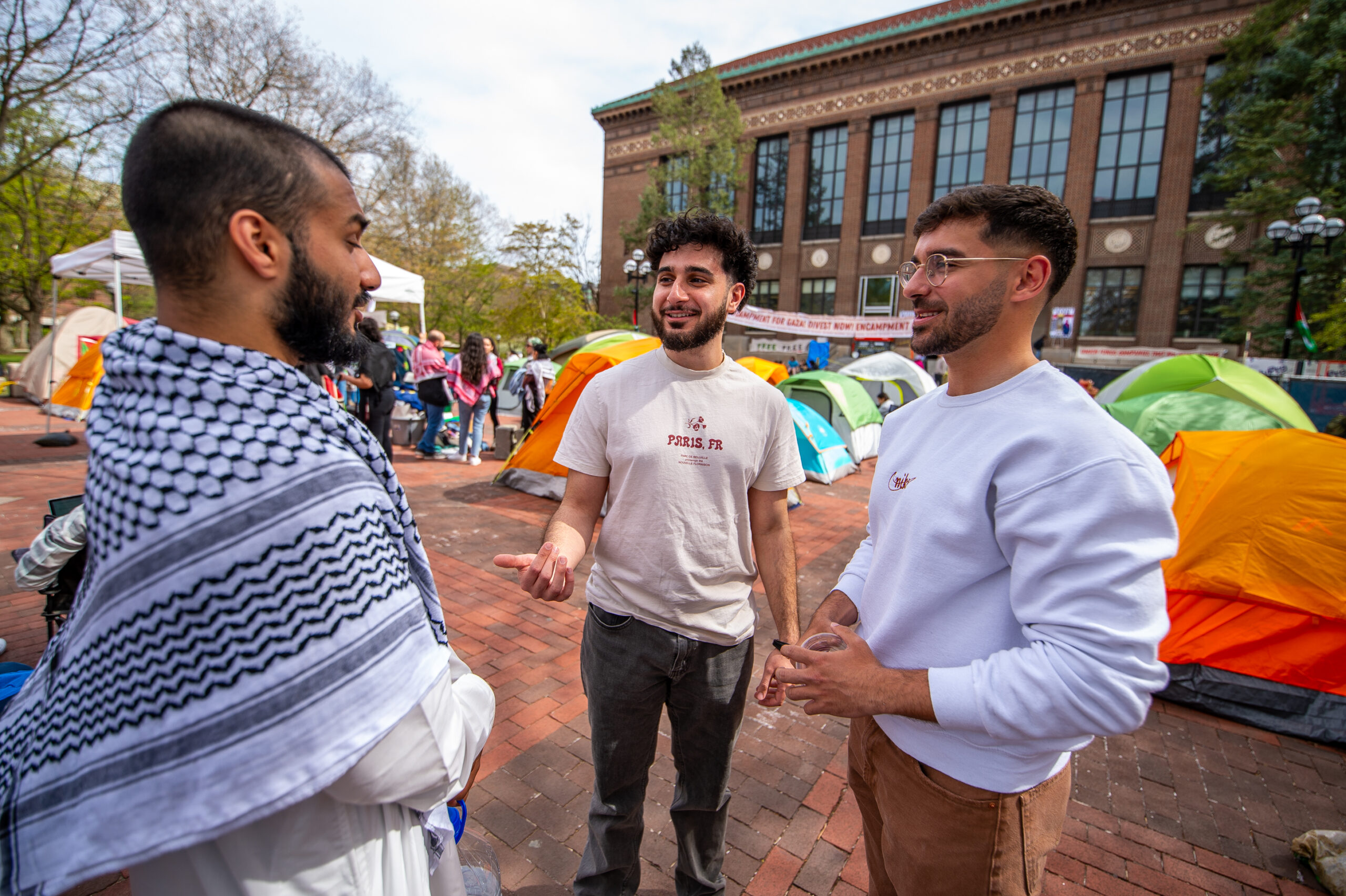
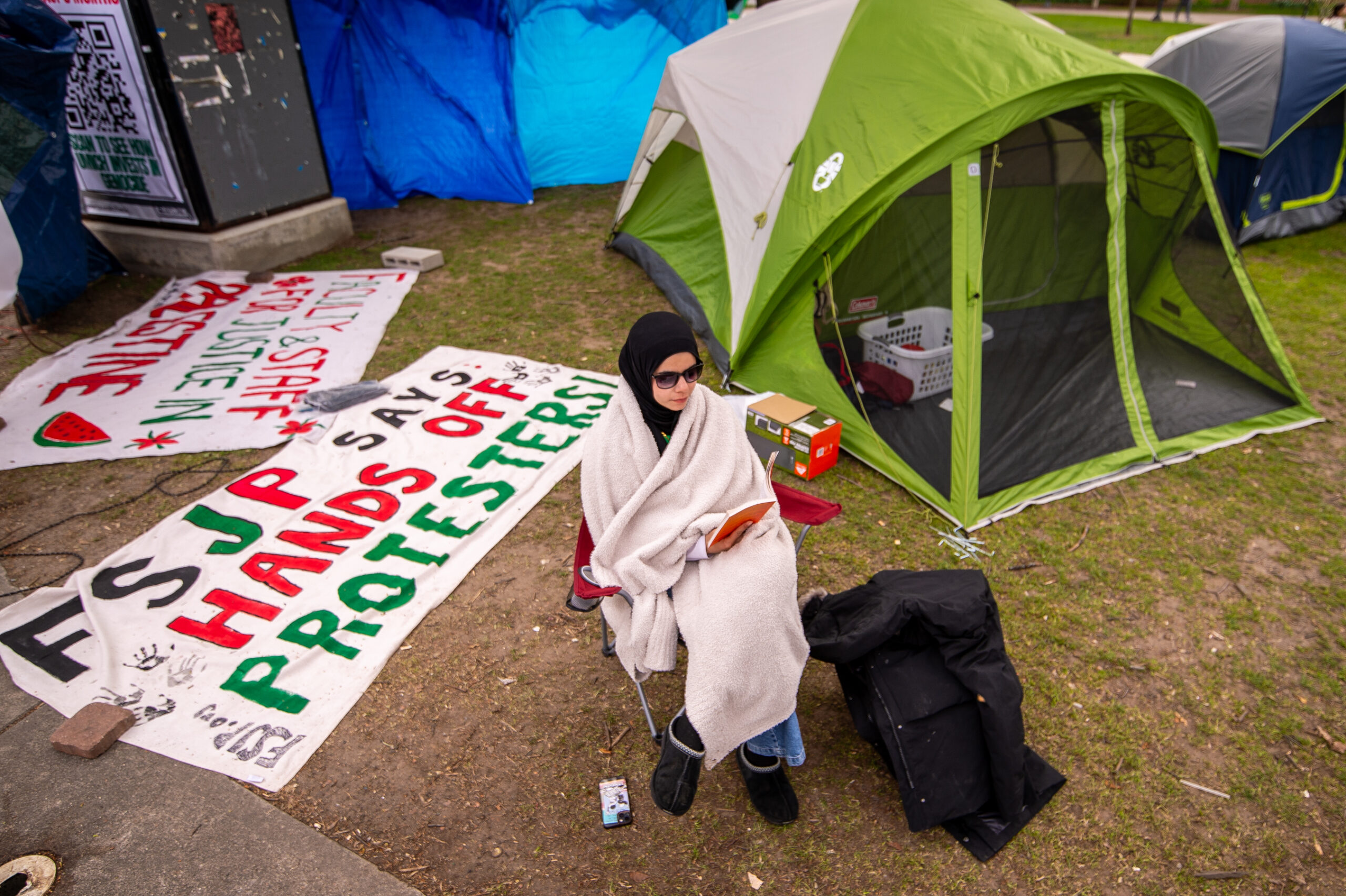



Leave a Reply